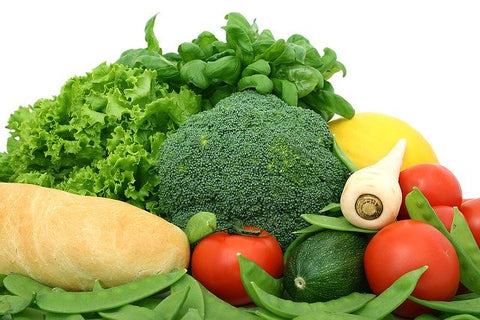Why Colon Health is Important
The old saying, “Out of sight, out of mind”, can easily be applied to colon health. Our colon isn't the first thing we think of at the start or end of the day - and almost never in between, yet colon health directly affects the whole digestive system. Good colon health provides regularity and prevents constipation and fatigue. When the colon is working well, the body has more energy and is stronger and better able to fight off disease.
According to the American Cancer Society 100,000 colon cancer diagnoses are given each year. One in 22 men and one in 24 women will eventually develop colorectal cancer and only 10% of colon cancers are hereditary. This means taking steps to ensure a healthy colon can make a huge difference in avoiding the disease!
9 Steps to Good Colon Health
- Diet is important -
- Get plenty of fiber. Eat plenty of fruits, vegetables, and whole grains. The American Cancer Society recommends at least 2 ½ cups per day. Not only are these foods high in fiber, but they also offer nutrients and antioxidants.
- Limit red meats and processed meats. Saturated fats increase the risk of colon cancer.

- Limit alcohol intake - Studies show that excessive alcohol can cause many forms of cancer. The recommendation is no more than 2 drinks per day for men, and 1 for women.
- Drink water – drinking water helps flush toxins out of the body. The standard suggested amount is 8 or more glasses of water a day.

- Chew more – take time to relax while eating your meals. Experts suggest chewing each bite 30 times before swallowing for optimal support for your digestive system and colon.
- Exercise - Exercise encourages better digestion and more consistent bowel movements. Break up long periods of sitting with short walks.

- Get that Colonoscopy – Start getting regular colonoscopy screening at the age of 50, age 40 or even earlier for those whose family members have been diagnosed with colon cancer. Colonoscopies can detect cancer and also allow medical professionals to remove polyps, assisting in the prevention of colon cancer.
- Avoid stress – The high pace and stress of everyday life can cause distress for the digestive system. Find what helps reduce stress for you. Practice mindful breathing, yoga, read, do puzzles, or enjoy nature.

- Get Vitamin D – One of the most important vitamins for colon health is vitamin D. The most natural way to get it is straight from the sun. If you are unable to get enough sun year-round or work inside during daylight hours, vitamin D can also be found in fatty fish, bread, cereal, and milk. Many people find the easiest way to get the recommended amount of vitamin D is through supplements like a multi vitamin.
- Supplements – Some supplements are specifically designed to assist with colon health. One example is Effective Natural Product’s Clean Colon capsules, an herbal, thermogenic & fiber blend, that offers the ingredients the colon needs to remove toxins and boost energy.
Sources
“6 Things You Can Do to Promote Colon Health: Tri-City Medical Center.” Tri, 29 Dec. 2018, www.tricitymed.org/2017/04/6-things-can-promote-colon-health/.
“Eating for a Healthy Colon.” Rush University Medical Center, www.rush.edu/health-wellness/discover-health/eating-healthy-colon.
Volek, Dee. “Keeping Your Colon Healthy Can Save Your Life.” Premier Medical Group, 27 Mar. 2019, www.premiermedicalhv.com/news/keeping-your-colon-healthy-can-save-your-life/.
Voyage Healthcare Team. “6 Tips for Keeping Your Colon Healthy.” Voyage Healthcare, 31 July 2019, www.voyagehealthcare.com/blog/6-tips-for-keeping-your-colon-healthy.
